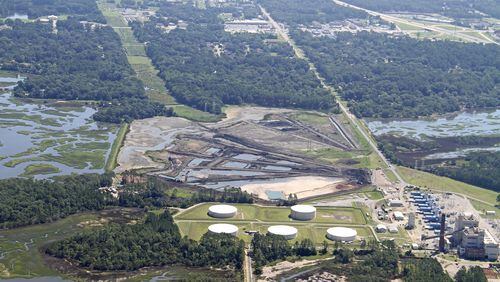Georgia’s top environmental board unanimously approved Wednesday new coal ash rules that, while more stringent than federal regulations, don’t fully satisfy environmentalists and citizens who live near landfills.
The vote comes two days after The Atlanta Journal-Constitution reported that arsenic and other toxic metals — at levels 20 or 30 times federal drinking water standards — have been discovered in the groundwater near a half-dozen Georgia Power plants. The metals may come from the utility’s holding ponds, which contain coal ash, a potentially dangerous byproduct of coal-fired electric power plants.
The rules approved by the Georgia Department of Natural Resources apply to the storage, handling and disposal of coal ash. Georgia Power, for example, tallies 86 million tons of ash stored in 29 on-site ponds. A dozen of those lagoons will be “closed in place” without removal of the ash. The utility will close all ponds within three years.
The new rules apply to more coal ash storage and disposal sites than covered by federal law. Landfills that accept ash must routinely test groundwater for contamination. And landfill neighbors, via their county commisioners, must be alerted if any leaks occur.
Jeff Cown, the director of the state’s Environmental Protection Division, says the rules will safeguard Georgia’s land and water. Stricter monitoring and cleanup is possible in the future, he adds.
Environmentalists aren’t convinced.
“These rules are an important step forward, but they do not go far enough,” Chris Bowers, a senior attorney with the Southern Environmental Law Center, said in a statement. “We continue to advocate for stronger, more protective rules, especially in light of the fact that initial groundwater monitoring results show high levels of coal ash contaminants. Leaving the ash behind in unlined, leaking pits is not an acceptable solution for Georgia.”
Georgia Power will dig out 8 million to 10 million tons of the coal ash and ship the waste to Georgia landfills. The AJC reported earlier this year that groundwater near two landfills has been contaminated by vanadium, beryllium and other metals, possibly from coal ash shipped in from other states.
Georgia Power says contaminants discovered at their sites pose no harm to neighbors or nearby waterways.







